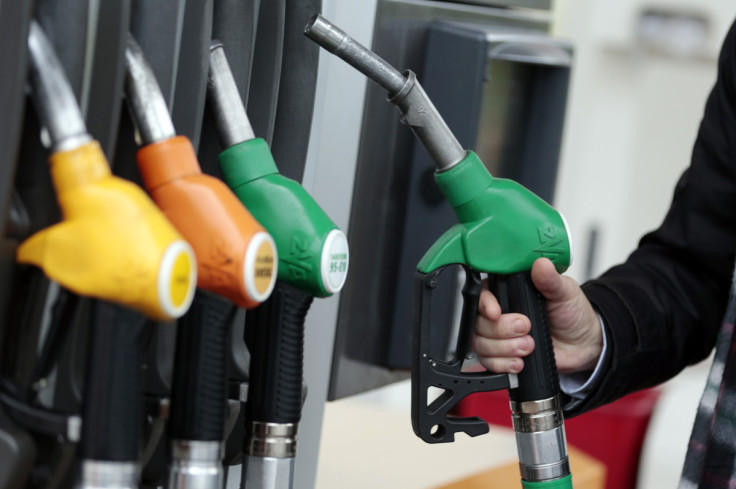Analysis-French Paying Dearly To Keep Inflation 'Poison' At Bay - For Now

Belgian motorists are crossing the border into France to fill up on subsidised fuel that costs the Treasury billions of euros and is designed to shield French households from the full inflationary pain felt in some neighbouring countries.
Subsidies and aggressive price caps on energy have helped shore up consumer spending in France, and with it economic growth.
But maintaining these costly inflation-relief measures is getting harder, and weaning households off the state's largesse may unleash a new wave of price rises down the line, some economists say.
"We've made the choice to have a bit less inflation and more debt," said economist Sylvain Bersinger with consultancy Asteres.
"The consumer wins, but the taxpayer loses. There's no magic wand."
Calling high inflation a "poison for democracy", Finance Minister Bruno Le Maire said on Monday that the fight against rising prices was France and Europe's biggest challenge, as he presented his 2023 budget.
Although France is not Europe's biggest spender on inflation relief, it did get off to an earlier start, freezing gas prices nearly a year ago and capping power price increases at 4% this year by lowering consumption taxes and compensating energy providers to keep prices down.
A spring presidential election may have motivated the government to act early, but the move now looks shrewd. French households have been spared the extent of price spikes since seen elsewhere where governments were slower to act.
Though a record high, inflation in France was only 6.6% in August, enviably lower than the 8.8% seen in Germany and the 9.9% in Britain.
"Since autumn 2021, we have had an energy shield in place that kept power and gas prices at reasonable levels. That has allowed us to keep inflation the lowest in the euro zone," Le Maire said.
GROWING COST
The official statistics agency INSEE estimates the power and gas price caps have helped keep French inflation 3.1% percentage points lower than it would have been otherwise.
Macron's government has also given millions of low-income households grants to cope with the rising cost of living. It also hiked welfare and pension payouts by 4% over the summer and raised the minimum wage 2% and civil servants' salaries 3.5%.
France's anti-inflation spending since the start of the crisis will next year reach more than 85 billion euros - 3.5% of gross domestic product - according to Reuters calculations.
However, Finance Ministry officials are quick to point out that keeping inflation artificially low also saves money because France's considerable welfare and pension benefits are largely indexed to inflation.
With much of Europe teetering on the brink of recession, France's largesse has also left the euro zone's second-biggest economy on a slightly firmer footing, with Le Maire aiming for 1% growth next year.
"For now, recession is not the main scenario, but rather very weak growth in 2023," said Mathieu Plane, an economist with think tank OFCE said.
"There's been an arbitrage between the deficit and inflation in France. There's been a choice to keep energy tariff limits."
TARGETED AND TEMPORARY
Nonetheless, as the cost grows and no end to the crisis seems to be in sight, the government is easing back on some of its measures, though they still remain more generous than in many countries. Power and gas price rises will be capped at 15% next year, which alone will cost the Treasury 16 billion euros.
In a blow for Belgian drivers but a relief for France's Treasury, it plans to phase out fuel subsidies by the end of this year, although if oil prices spike again Le Maire has left the door open to reactivating them albeit in a more targeted way.
France's blunt, broad-based approach flies in the face of recommendations from the International Monetary Fund and European Central Bank chief Christine Lagarde to keep anti-inflation measures as targeted and temporary as possible.
The left-leaning Terra Nova think tank estimates that for each 100 euros spent to limit gas and power prices, only 8 euros goes to the benefit of the poorest 10% of households while 13 euros goes to the richest 10%.
Scaling down France's relief measures also risks unleashing a burst of inflation, pushing it towards rates elsewhere in Europe, especially as countries like Germany and Britain play catch-up with their own measures.
"It's not a foregone conclusion that (French inflation) will be lower than other countries in 2023," Plane said.
But for now, French households - and Belgian motorists seeking relief from high fuel prices at home - are trying to make the most of the French state's spending.
"It's much cheaper here in France," said one happy Belgian driver as he waited to fill up his car.
© Copyright Thomson Reuters 2024. All rights reserved.




















